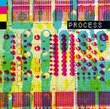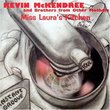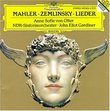| All Artists: Ludwig van Beethoven, Vladimir Ashkenazy Title: Beethoven: The Piano Sonatas [Box Set] Members Wishing: 0 Total Copies: 0 Label: Decca Release Date: 6/24/1997 Album Type: Box set Genre: Classical Styles: Forms & Genres, Sonatas, Historical Periods, Classical (c.1770-1830), Modern, 20th, & 21st Century, Romantic (c.1820-1910) Number of Discs: 10 SwapaCD Credits: 10 UPC: 028944370621 |
Search - Ludwig van Beethoven, Vladimir Ashkenazy :: Beethoven: The Piano Sonatas [Box Set]
![Beethoven: The Piano Sonatas [Box Set]](https://nationalbookswap.com/cd//l/19/2319/6022319.jpg) | Ludwig van Beethoven, Vladimir Ashkenazy Beethoven: The Piano Sonatas [Box Set] Genre: Classical
|
Larger Image |
CD DetailsSimilar CDs
|
CD ReviewsAs a set, quite good D. B. Rathbun | Washington, DC United States | 08/19/2004 (5 out of 5 stars) "Ashkenazy, as a musician, is far above the level of almost the entire rest of humanity, and is among the very few at the top among great musicians. I certainly don't expect most CD buyers looking for a one-stop-shopping box of all the Beethoven sonatas to grasp where Ashkenazy's Beethoven is, but some have been very correct in noting that Ashkenazy is, if anything, very consistent. Needless to say, his Beethoven cannot be everything to everyone. But one could hardly even say that about, say, Richter playing the op. 90, the op. 7, or 111, which are all mind-boggling; or of Casadeus doing op. 78; or Gilels doing 81a or 57, or van Cliburn doing 2/1, or Harasiewicz doing 27/1, or Kissin's amazing 53, or other inimitable performances. But still, few capture as much in any single sonata than Ashkenazy: specific phrases that he simply captures just right, down to tiny little details in phrasing and articulation, like the B section of the op. 13 rondo, or the cascades or serene moments in 111, or the dotted rhythms in the slow movement of 53, and the list goes on and on. I think it would be hard to deny he has created some of history's best performances of 28, 53, 31, 111, 2/2, and perhaps others. But if you don't want to track down your very favorite performance of every single sonata--a very time consuming and relatively more expensive alternative--this is arguably the best box available. Ashkenazy at this time was practically unique among pianists in having the musicality and intelligence to understand how these sonatas work effectively, as well as having the techinical ability to execute nearly everything he understands. For most, the comparison comes down to Ashkenazy or Barenboim. Both are incredible musicians with an astounding grasp of this repertoire; but in my opinion, Barenboim was not as tight, precise and consistent when he recorded them, and had some room for growth in his understanding of how many of these sonatas function, whereas Ashkenazy was pretty near his peak when he laid these down. As for Brendel, he has a familiarity and detail on some of these sonatas that few share, but I do not believe he came as close to overall perfection as Ashkenazy did. My impression has been that when someone has no idea what they're talking about regarding a performance, or doesn't "get" it, the easy fallback is that it lacks "emotion," or "weight." It's so easy to say, and so difficult to refute. It makes this comment the favorite of pretentious and mediocre minds. I can only note that the only negative things anyone can come up with regarding this particular run of Ashkenazy performances is that they lack a more favored level of emotion, or that they lack the weight of some other favored-for-no-specific-reason pianist." The Best Beethoven Piano Sonata Cycle Richard Mathisen | Ambler, PA USA | 07/07/2007 (5 out of 5 stars) "Somewhat to my surprise, the Ashkenazy cycle is the best recording of the complete Beethoven sonatas. I bought every Beethoven recording by every major Beethoven pianist and spent over 1,000 hours comparing all those recordings to each other. The only cycles close to the Ashkenazy are the little-known Claude Frank, Seymour Lipkin and Paul Badura-Skoda cycles (the Badura-Skoda cycle of 1970 on the grand piano, not the fortepiano version). After those come the better-known cycles by Richard Goode, Barenboim (2nd cycle, for DGG), and Kempff (2nd cycle, in stereo), and the little-known cycle by Annie Fischer. I leave aside the Schnabel set which continues to define the standard for interpretations despite inadequate sound, and many high-quality recordings by Richter who never did a complete cycle. I say "somewhat to my surprise," because Ashkenazy is not known as a Beethoven pianist. He is regarded as a great interpreter of romantic music, with the big technique and beautiful tone needed for that repertoire. Well, he has the big technique and beautiful tone, which is good. However, what is most noticeable to me is the scrupulous attention paid to Beethoven's text. In that regard, Ashkenazy is the equal of Claude Frank and Rudolf Serkin, which is high praise indeed. The purpose of buying a complete cycle is usually to form a base for a collection. One can quibble with some of Ashkenazy's interpretative details or with Decca's recording techniques. However, the question then becomes: what is the alternative? The competing cycles are either a little worse or a lot worse. After buying one complete cycle, the lover of Beethoven can then add a number of other sonata recordings -- the Horowitz recordings for RCA Victor, the Rubinstein recordings, the Gieseking disk of the Pathetique and other works, the Pollini late sonatas, many of the Richter recordings. If I am asked to recommend one Beethoven sonata cycle as the basis for a collection, I would unhesitatingly recommend the Ashkenazy Decca cycle." Underrated ! rater25 | 08/01/2006 (4 out of 5 stars) "This set has never been a critical favorite. I doubt anyone would claim that Ashkenazy is one of the great Beethoven interpreters. And yet it makes for quite pleasurable listening. For starters, we have Ashkenazy's high technical prowess, his beautiful tone and general finesse. We seem to have accepted as great Beethoven pianism, playing that ranges from the painfully plain (Brendel) to the downright ugly (Kuerti). But Kempff has shown us that a non-aggressive beauty can reveal another side of this great composer. Ashkenazy is not in Kempff's league as a Beethoven interpreter, but nearly every performance is effective here and evinces a real musical fluency. More ambitious Beethoven players (e.g. Kovacevich) have often made recordings that totally miss the mark.
So, this set would be a perfect for listeners coming to this music for the first time. And seasoned Beethoven sonata listeners might enjoy it as well. Just don't expect poetical profundity. " |

 Track Listings (12) - Disc #1
Track Listings (12) - Disc #1



